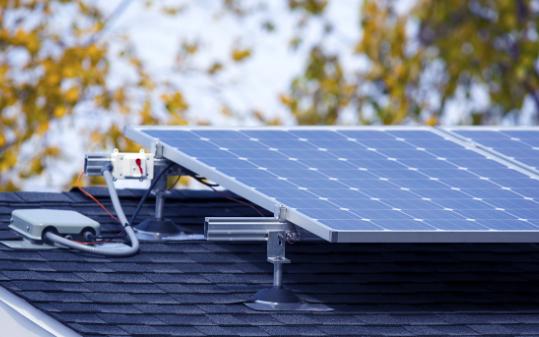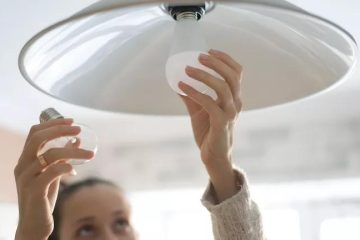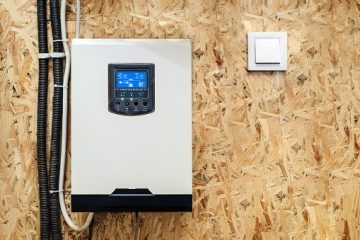In Nigeria, where electricity supply can be inconsistent, many homeowners are turning to solar energy as a reliable and sustainable alternative. Installing solar panels at home not only reduces dependence on the national grid but also offers long-term cost savings. At Just HardRich Global Resources Limited, we specialize in providing top-notch Electrical Power and Control Engineering services, ensuring that your transition to solar energy is seamless and efficient.
Understanding Solar Energy Basics
Solar panels convert sunlight into electricity using photovoltaic (PV) cells. This electricity can power your home appliances, lighting, and other electrical needs. In Nigeria, with its abundant sunlight, solar energy is a particularly viable option for both urban and rural dwellers.
Step-by-Step Guide to Installing Solar Panels at Home
1. Assess Your Energy Needs
Begin by evaluating your household’s energy consumption. List all electrical appliances, their wattage, and the average hours of use per day. This assessment helps in determining the size and capacity of the solar system required for your home.
2. Site Evaluation
Identify the most suitable location for installing the solar panels, typically the rooftop. Ensure the chosen spot receives maximum sunlight throughout the day and is free from obstructions like trees or neighboring buildings.
3. Choose the Right Solar Components
Select high-quality solar panels, inverters, batteries, and charge controllers that match your energy requirements. At Just HardRich Global Resources Limited, we recommend components that are durable and efficient, suitable for the Nigerian climate.
4. Design the Solar System
Design a system layout that optimizes space and efficiency. This includes determining the number of panels, their arrangement, and the wiring plan. Proper design ensures maximum energy harvest and system longevity.s
5. Install Mounting Structures
Securely install mounting brackets on the chosen site to hold the solar panels. These structures should be robust and weather-resistant, ensuring the panels remain stable over time.
6. Mount the Solar Panels
Carefully place the solar panels onto the mounting structures, ensuring they are angled correctly to capture the most sunlight. In Nigeria, a tilt angle between 10 to 15 degrees is generally effective.
7. Electrical Wiring
Connect the solar panels to the inverter using appropriate wiring and connectors. Ensure all connections are secure and insulated to prevent electrical hazards. It’s advisable to use MC4 connectors for their reliability and ease of use.
8. Install the Inverter and Battery
The inverter converts the DC electricity from the panels into AC electricity for home use. Install it in a cool, ventilated area, away from direct sunlight. If using a battery storage system, connect it to the inverter to store excess energy for use during non-sunny periods.
9. Connect to the Electrical Panel
Integrate the solar system with your home’s electrical panel, allowing the solar energy to power your household appliances. Ensure this step complies with local electrical codes and standards.
10. System Testing and Commissioning
After installation, thoroughly test the system to ensure all components function correctly. Monitor the energy output and check for any anomalies. Regular maintenance checks are essential to keep the system operating efficiently.
Factors to Consider Before Installation
Cost Implications
While the initial investment in solar panels can be significant, the long-term savings on electricity bills make it worthwhile. Additionally, various financing options and government incentives may be available to offset the upfront costs.
Quality of Components
Investing in high-quality components ensures durability and better performance. At Just HardRich Global Resources Limited, we source and install only premium-grade materials to guarantee customer satisfaction.
Professional Installation
Proper installation is crucial for the safety and efficiency of the solar system. Engaging professionals like Just HardRich Global Resources Limited ensures that the installation meets all safety standards and performs optimally.
Maintenance Tips
- Regular Cleaning: Dust and debris can reduce panel efficiency. Clean the panels periodically to maintain optimal performance.
- Routine Inspections: Check for any signs of wear or damage in the wiring and components.
- Battery Maintenance: If using batteries, ensure they are maintained according to the manufacturer’s guidelines to prolong their lifespan.
Conclusion
Transitioning to solar energy is a smart move for Nigerian homeowners seeking reliable and sustainable power solutions. With the expertise of Just HardRich Global Resources Limited, you can be assured of a seamless installation process and a system that meets your energy needs efficiently.
For professional consultation and installation services, contact us at +234 803 255 9417 or visit our website at www.justhardrich.com.ng.




